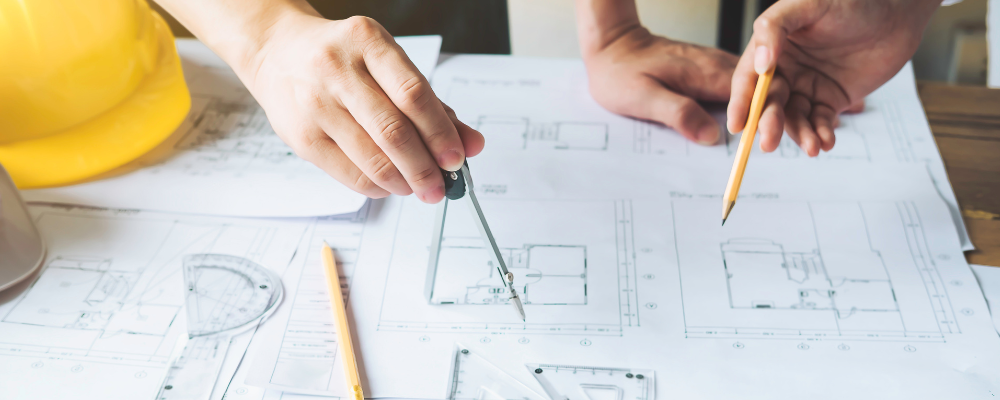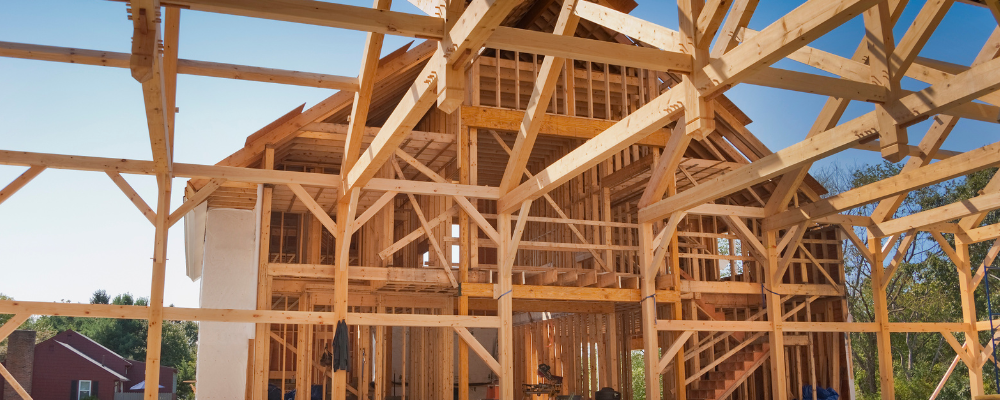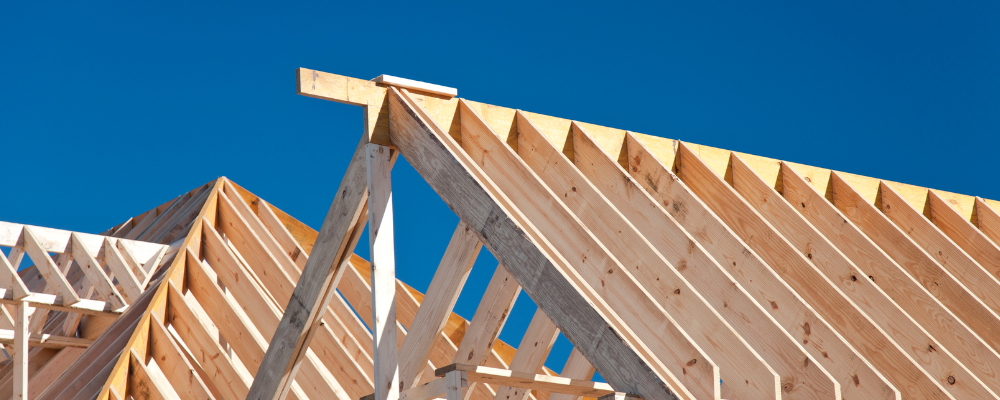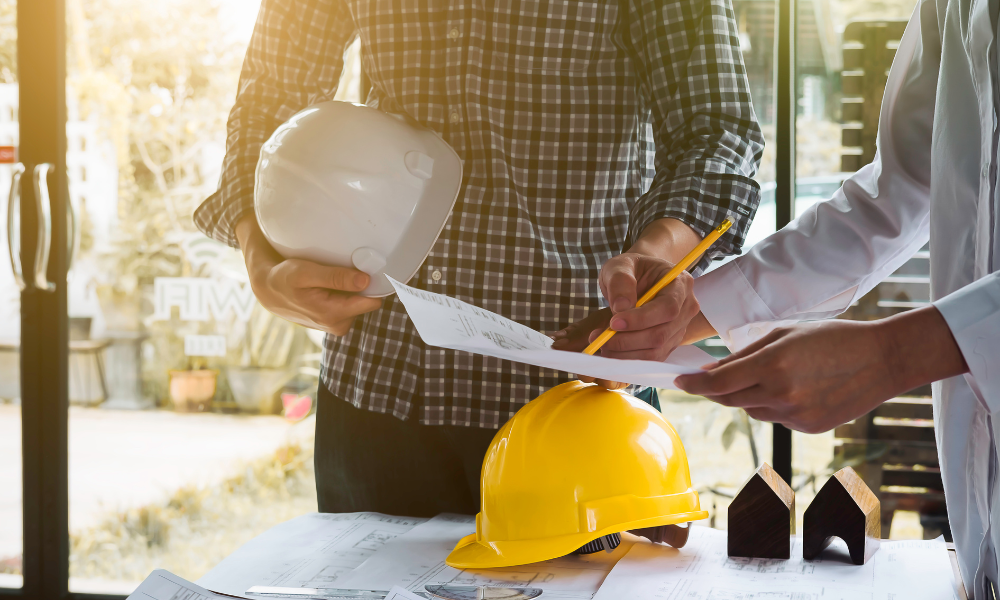A quick outline
Starting a career in real estate development can be both exciting and daunting. Becoming a land developer is a potentially lucrative path that comes with its own set of risks and preparations that you should be aware of. From education to starting your first project, we’ve got a step-by-step guide on how to become a land developer, and what the benefits and risks are.

Getting started with a career in the real estate space can take many forms and one of them is to become a real estate or land developer. For those who are already in real estate, for example as a real estate investor, you may be wondering how to transition into real estate development. For those who aren’t in real estate, you may be looking for more information on how to begin your career as a land developer.
There is no rulebook on becoming a real estate developer, neither is there a single way to begin a career in this. So, to help you, we’ll take a closer look at what it takes to become a land developer, including the qualifications you’ll need and the steps that you can take.
What is a land developer?
A real estate or land developer purchases land, and then builds a property from the ground up or tears down the existing structure to re-build it. The land developer will oversee all parties involved in this construction. So, it’s important for real estate developers to envision the potential of a piece of land. The developer will then sell the property for a profit, once the project is complete.
What qualifications do you need to become a land developer?

Education is crucial for a successful career in real estate. There are various courses and educational tools that should be considered, before starting a career as a real estate developer. Essentially, the more you know about real estate, the better, so many developers have done an undergraduate or master’s degree in real estate.
A knowledge of both real estate and business is the best combination for this career choice. Along with this, developers should be continuously adding to their knowledge. Institutes like CCIM and NAIOP are popular for real estate developers to learn the important real estate details that will come in handy for this career. Some developers also choose to get their real estate license first, to brush up on the ins and outs of real estate.
While the education component is important, nothing beats experience. Experience in the following industries lends itself to the real estate developer career path: construction, finance, urban planning, architecture and other real estate professions.
Can you become a real estate developer without any qualifications?
There are certain qualifications that most real estate developers will need, in order to begin operating in this field. According to Pedro Hernandes, the demand generation manager at Groundbreaker, “A real estate developer must hold a bachelor’s degree in a related field, such as management, business or even engineering. The ability to plan and organize projects, general knowledge of real estate and an entrepreneurial mindset are all important skills to become a real estate developer”.
In other words, you may not be able to become a real estate developer without any qualifications. It’s important to have a bachelor’s degree in a related field at the very least, as well as some sort of real estate qualification or your real estate license. Along with this, experience is a crucial part of qualifying to be a real estate developer, along with strong research and analytical skills.
Step-by-step guide to becoming a real estate developer
There is no specific path that all real estate developers have followed to get where they are, as there are various routes that you can take to become a developer. However, here are a few of the most common steps to take to forge your path to becoming a real estate developer.

Step 1: Get an education foundation
Your first step on the journey towards becoming a real estate developer is to get the necessary education. Earning a degree in real estate is an invaluable qualification to have for real estate development. This can be found at various universities around the country as an undergraduate degree, master’s degree and MBA.
While there aren’t many real estate development specific courses, a combination of real estate, management, business, engineering, construction, law or finance would work well for this career path. Along with this, you may consider doing an internship while you study, to start gaining foundational experience in the real estate world.
Step 2: Gain the right experience
Once you have completed your studies, the next step is to get the right experience. You can do this by working in a real estate development company or in a related real estate profession, for example construction or architecture.
A junior real estate developer can learn the ropes by developing budgets, keeping projects on schedule, conducting market research and much more. For those who have chosen to get experience in other fields, a real estate broker can give valuable insight into the inner workings of the industry. It’s a good idea to approach a successful real estate developer to mentor you, so that you can learn from them.
Step 3: Build a network
Fostering mutually beneficial relationships with others in the real estate industry is a good way to build your network. Real estate developers need a solid, reliable team to assist them with projects, so it’s important to begin finding these people as soon as possible.
To create a network of reliable professionals in the real estate industry, you can begin by joining specific real estate networking platforms, joining social media groups and attending real estate events in the area.
Step 4: Understand the market
A vital part of real estate is understanding the market. Each area has a different real estate market, so researching the local market where you intend to operate is crucial to the success of your journey as a real estate developer. Take as much time as you need to research the trends in your local real estate market, for both residential and commercial real estate.
Step 5: Find capital
Finding capital for your first project is the next big step on your journey to becoming a real estate developer. By this stage, you should have a good understanding of how to manage finances well, set budgets and oversee the finances of the project.
If you don’t have the capital upfront, you may need to find partners to fund the project or get funding in the form of a real estate loan. There are various real estate loans to consider, so brush up on your knowledge of this so that you can make the right financing decision for your journey.
Step 6: Start a project
Now it’s time to start your first project as a real estate developer. It’s at this point where you’ll find land to buy, develop a plan for the real estate development process and begin construction. Once you’ve completed the project, you’ll sell the property for a profit and that’s your first real estate development project completed!
The main risks of developing land

- A real estate market crash: A crash or downturn in the real estate market can lead to a decline in property values, which means that real estate developers won’t make a lot on their resale and could incur an increase in holding costs.
- Rising construction costs: During the development phase, if costs increase for construction, this can change the entire financial setup for the project and lead to a smaller profit.
- Project delays: One of the most common risks to be aware of is time delays on the project. If real estate developers don’t have the right risk management plans in place, time delays can be extremely costly.
- Unexpected contractor or union disputes: Any issues with contractors or their unions during the development phase of the project can lead to major delays, which is costly and will impact the project negatively.
- The wrong location: One of the worst problems to arise in a real estate development project is discovering that the location isn’t good, or the property itself has an environmental risk (such as a problem with the soil). These are issues that sometimes cannot be resolved and could ruin the entire project.
- Delays in approvals: Development plans will need approval from the municipal office, and various other permits will be needed for different parts of the project. Any delays on these approvals or permits can cause major issues for the project.
The main benefits of developing land

- Generating significant returns: Real estate is a notoriously successful asset to invest in, and one of the biggest benefits to developing land is the potential to generate high returns.
- Short-term investment: Buying land to build and then reselling it is a shorter-term real estate project that can make good profits within just a few months or years. When it’s done right, this strategy can deliver faster returns than other investments such as the stock market.
- More stability: Real estate typically appreciates over time, and this means that real estate development offers developers a more stable strategy to make a profit from. The real estate market is typically less volatile than other markets and this bodes well for developers when it comes time to sell.
- Leverage: Once you have completed 1 project, you can use this as leverage to continue your real estate development journey.
- Easier finance: Successful real estate developers who have completed a project can get finance easier. Banks may offer the option to refinance the property, and lenders will usually offer at least 80% of the value of a project, once it’s completed.
- Tax benefits: For real estate developers who own several properties, there are several tax benefits. These include deductions for taxes, mortgage interest, advertising expenses and more. As well as property depreciation allowances.
How much do real estate developers earn?
According to Indeed.com, property developers in the US earn an average of $88,810 per year. Salaries range between $52,557 on the low end and $150,072 on the high end.
A real estate developer’s salary varies quite drastically depending on their experience, the type of properties they’re working on and the real estate market they’re developing in. Some real estate markets have higher property values, and these developers stand to make larger profits.
Is developing real estate the right path for you?
It’s important to make sure real estate development is a good fit for you before you go down this path because it’s a big commitment. If you’re confident that you have an extensive real estate knowledge, the right education, effective analytical skills and a good grasp of project and financial management then this could be the right path for you.
If you’re unsure, spend some time with a real estate developer and shadow them for a while to see if this could be a good fit for you. This path can be a lucrative option for many people, but it’s important to enter it once you’re fully prepared.



